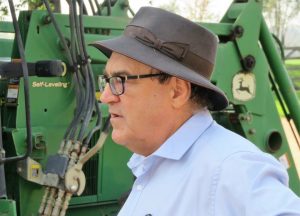Cameron Archer
This website works in conjunction with my online bookstore where you can purchase “Magic Valley” and “Highlands to the Limestone Plains” which are published by ACA Books. See the books page for details of other books I have written and where you can buy them.
About Cameron
 Cameron has spent his life immersed in agriculture and the natural environment from growing up on a farm, attending an agricultural high school, undertaking an agricultural science degree at the University of Sydney specialising in botany and plant ecology, working in Northern Australia as a research/extension agronomist and then spending his career in agricultural education at Tocal Agricultural College in the Paterson Valley, New South Wales.
Cameron has spent his life immersed in agriculture and the natural environment from growing up on a farm, attending an agricultural high school, undertaking an agricultural science degree at the University of Sydney specialising in botany and plant ecology, working in Northern Australia as a research/extension agronomist and then spending his career in agricultural education at Tocal Agricultural College in the Paterson Valley, New South Wales.
Much of that period was as principal of the College overseeing a diverse range of educational programs and the extensive 2250ha farm enterprises.
He busied himself learning about vocational education, undertaking a course work postgraduate degree and a research degree in education but was eventually drawn back to a study about how the natural world and humanity meet through a PhD in environmental history of the Paterson Valley at the University of Newcastle.
This was underpinned by his long time involvement in local history and his life through floods, droughts, storms and blistering summers in the Paterson Valley.
Cameron has written various books published through the Paterson Historical Society and Tocal’s CB Alexander Foundation. These are available through those respective organisations.
He has also written papers and articles on various topics – view/download list of papers.
“The Magic Valley” reflects Cameron’s PhD but is more related to his experiences in the Valley and knowledge gained through local history and by interviewing many long time residents.
Cameron’s latest book “Highlands to the Limestone Plains” began with his desire to understand the broader factors and developments that underpinned his Scottish forebears’ emigration to Australia and onto the Southern Tablelands. This focus on the wider economic and social forces in order to gain a better understanding of family history is rare among today’s genre of genealogical research and publication.